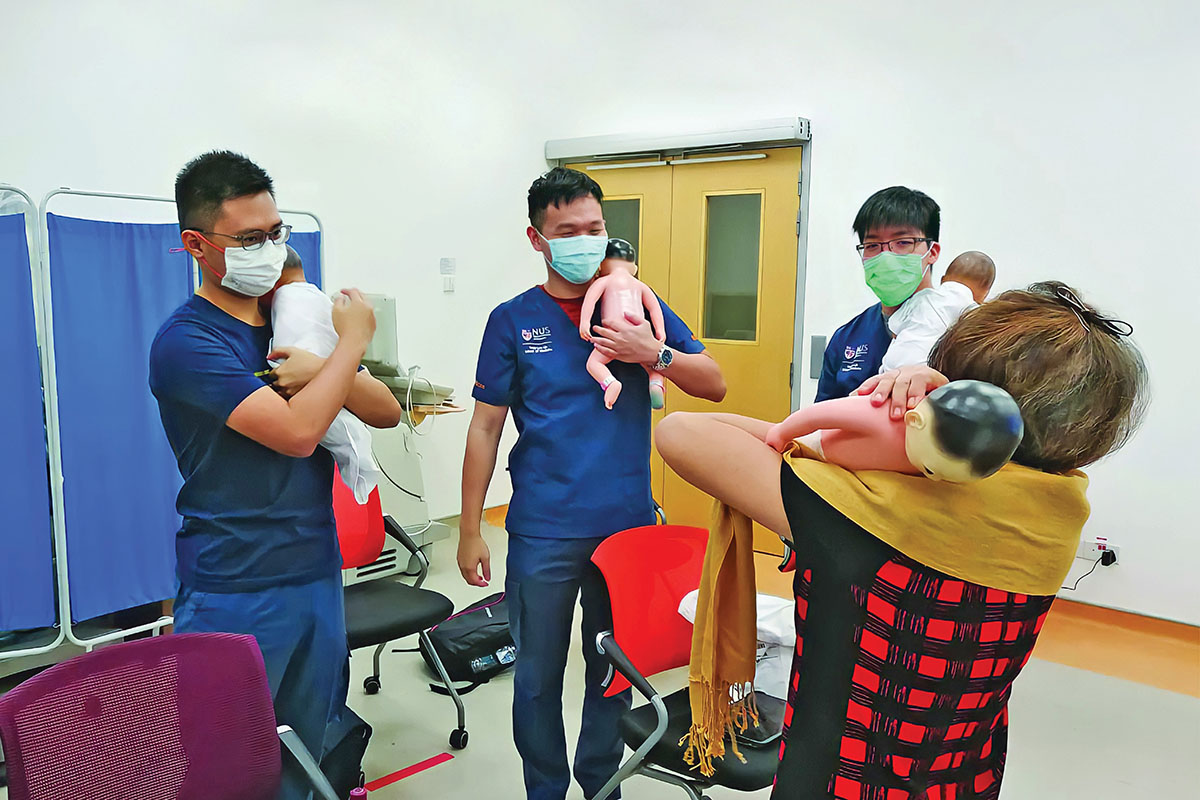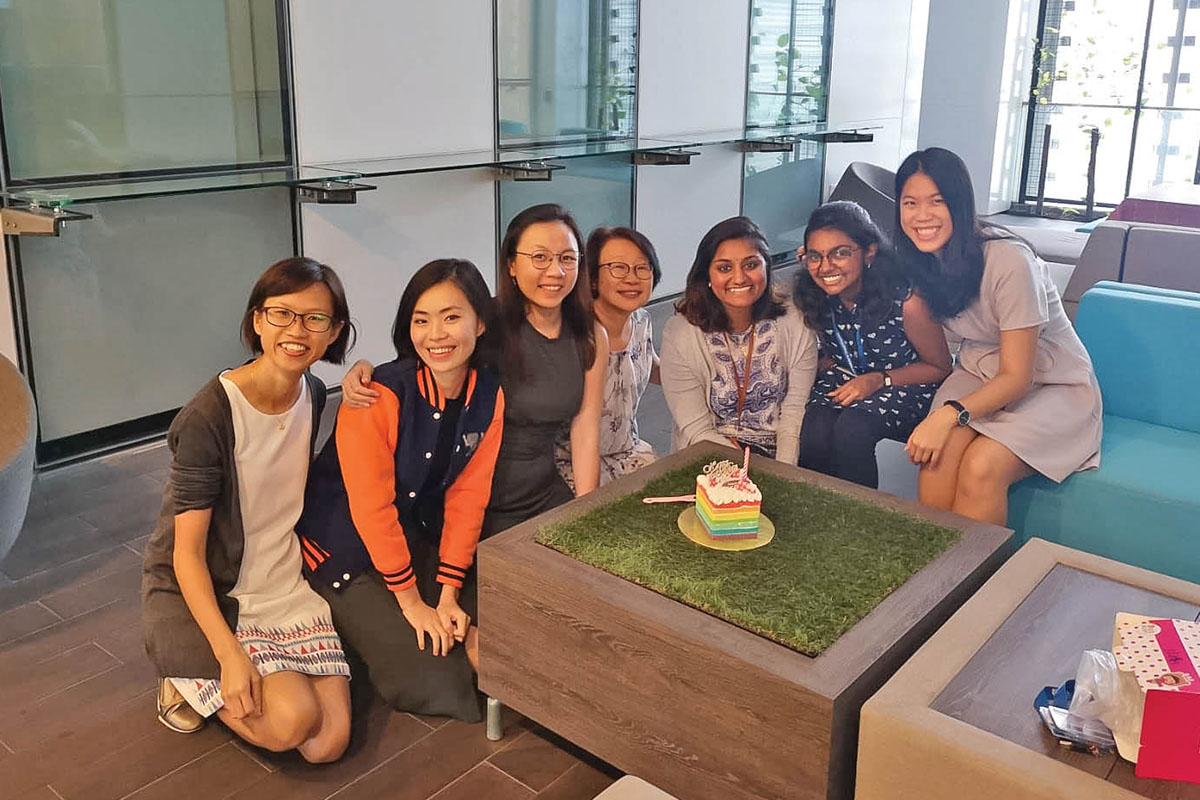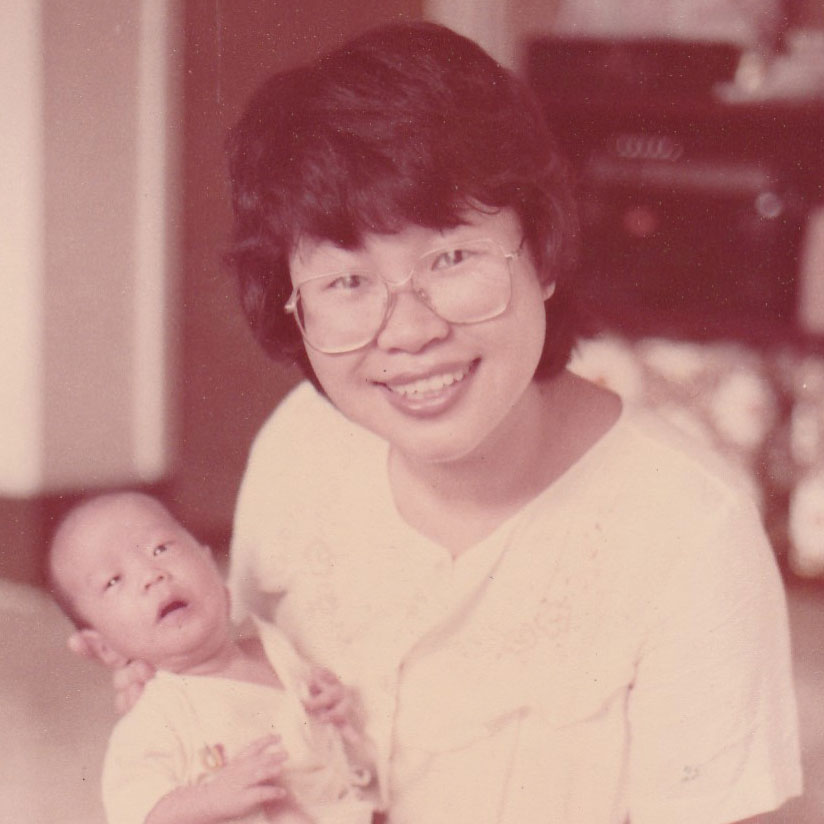
Issue 40 / November 2021
People of NUS Medicine
The Milk Run

A pioneering advocate of breastfeeding in Singapore, Doris Fok, from the Department of Obstetrics and Gynaecology, is the first Singaporean to become an International Board Certified Lactation Consultant (IBCLC).
ack in 1984 when Doris first became a mother, breastfeeding was a rare practice in Singapore. Knowledge on breastfeeding was scarce, and the practice was seen as one that belonged only to those who could not afford formula milk. Additionally, in the midst of a huge push for the economy to grow, many women relied on formula so they could return to the workplace, most of which did not have policies and practices to support breastfeeding employees.
Convinced that breastfeeding offers the best possible start for children, Doris chose to breastfeed her baby and started a neighbourhood group to provide help and support for mothers breastfeeding their children. She recalled, “I was the nosey neighbour who went around asking if the mothers needed help. It actually came as quite a shock to me when I learnt that many of them gave up within the first week when they encountered difficulties with breastfeeding. Many of them experienced pain or failed attempts, and received little support.”
Determined to champion breastfeeding, Doris began her journey as an advocate in the field of lactation. She joined the Singapore Breastfeeding Mothers’ Support Group and enrolled in a course to learn more about the subject, and train more mothers at hospitals. With experiences that inspired her to pursue a profession in the field, she set out to study for the IBCLC Examinations, despite having no medical or nursing background.

Doris (fourth from left) with her colleagues from the Department of Obstetrics and Gynaecology in 2019. (Photo taken before COVID-19, courtesy of Doris Fok)
Over seven tumultuous years of learning, during a time when there was no available curriculum nor local teachers, with the Internet non-existent and research in lactation scarce, Doris had to rely on her existing network of friends in the medical field as contacts for help. “I had to send many letters by post as there was no e-mail back then. After a long time, I finally managed to find three mentors from other countries who guided me on the journey.” In 1992, she became the first IBCLC in Singapore and Asia; this offered her several opportunities to share about the profession with various community groups, hospitals and organisations in Asia.
In addition, Doris was the first lactation fellow designated by the International Lactation Consultants’ Association (ILCA) in 2011. She joined KK Women’s and Children’s Hospital as their first lactation consultant in 1991, before becoming a member of the research team at the National University Health System (NUHS) in 2003 at the invitation of Prof Chong Yap Seng, the current Dean of NUS Medicine and an obstetrician and gynaecologist.
“Apart from helping mothers, it is my hope to increase awareness among the people around them—employers, communities and authorities—of how we can all come together to support mothers and effect greater positive change.”
Working closely with Prof Chong, Doris was part of the first committee that looked into how baby-friendly hospital practices could be implemented within NUH. The team under the leadership of Dr Yvonne Ng, the current chairperson of NUH Baby-friendly Hospital Initiative (BFHI) steering committee, then set out to train allied health, nursing and medical staff, studied practices in Australia, and drove changes to the hospital’s policies and protocols. The hospital became the first in Singapore to be awarded the BFHI certification in 2013, marking a significant shift towards more positive attitudes and increased knowledge of breastfeeding in the country.

Doris with her daughter in 1984, who was just a few days old. The baby needed a burp after having been breastfed, experiencing what is commonly known as “milk coma”. (Photo courtesy of Doris Fok)
At NUS Medicine and NUH, Doris does research as part of the Growing Up in Singapore Towards Healthy Outcomes (GUSTO)—the first and largest birth cohort study in Singapore—and the Singapore Preconception Study of Long-term Maternal and Child Outcomes (S-Presto) which looks at how the health, nutritional status, and mental state of women before pregnancy influence their subsequent pregnancy outcomes. Besides GUSTO and S-Presto studies, she is also involved with the NUH BFHI committee in developing resources and materials for new parents and doing pertinent research to encourage the practice of exclusive, effective and extended breastfeeding.
She also teaches the students and residents at NUS Medicine and NUH, and collaborates with various specialists in many research projects both locally and internationally, including the World Health Organization (WHO) and the United Nations Children’s Fund (UNICEF).
With a career in the field of lactation spanning close to four decades, Doris has helped mothers with a wide range of needs. “Apart from helping mothers, it is my hope to increase awareness among the people around them—employers, communities and authorities—of how we can all come together to support mothers, in order to effect greater positive change in the field.”




